Desdemocratización, género+ y las políticas de exclusión en Europa



The fundamental aim of this project is twofold. First, to develop a comprehensive and thorough understanding of the intersection of gender and other inequality axes with de-democratisation processes taking place on a local, national, and regional level in the European Union, in order to devise common strategies against them. And second, to build alliances across various domains by forging a solid network of expert scholars, politicians and civil society organisations engaged with the matter, in order to put such strategies into practice. To this end, two international conferences were organised within the framework of the UNESCO Chair on Interculturality and Human Rights hosted at the International University of Andalucía. The first one, which took place in Baeza, Spain, between the 6-8 of November, 2019, brought together expert scholars in the field, from different disciplinary backgrounds and a variety of different countries, who presented their most up-do-date research on the topic. The result was the publication of an open access special issue in the journal Social Politics, titled “De-Democratization and Opposition to Gender Equality Politics in Europe". The second conference, after being postponed three times as a result of the COVID-19pandemic, finally took place in Seville, Spain, between the June 30 and July 1, 2022, bringing together an interdisciplinary groups of scholars, politicians and civil society actors, resulting in a clear diagnosis of the situation as well as a compendium of policy and civil society recommendations.
The Project has been co-financed by the Erasmus+ Action Program of the EU and the UNIA.
El objetivo fundamental de este proyecto es doble. Primero, desarrollar conocimiento de manera integral y profundizada respecto a la intersección entre el género y otros ejes de desigualdad y los procesos de desdemocratización que están teniendo lugar a nivel local, nacional y regional en la Unión Europea, con el fin de diseñar estrategias comunes para combatirlos. Y segundo, construir alianzas entre varias áreas forjando una red entre personas del mundo académico, político y de al sociedad civil, para poner en práctica dichas estrategias. Para ello, se organizaron dos conferencias internacionales en el marco de la Cátedra UNESCO de Interculturalidad y Derechos Humanos de la Universidad Internacional de Andalucía. La primera, que tuvo lugar en Baeza, Jaén, entre el 6 y el 8 de noviembre de 2019, reunió a personas académicas expertas en la materia, de diferentes disciplinas y países, quienes presentaron su investigación más actualizadas sobre el tema. El resultado fue la publicación en abierto de un número especial en la revista Social Politics, titulado “De-Democratization and Opposition to Gender Equality Politics in Europe”. La segunda conferencia, después de ser pospuesta tres veces a causa de la pandemia del COVID-19, finalmente tuvo lugar en Sevilla, entre el 30 de junio y el 1 de julio de 2022, reuniendo a un grupo interdisciplinar de personas del mundo académico, políticos y de la sociedad civil, resultando en un diagnóstico claro de la situación así como en un compendio de recomendaciones de políticas públicas y para la sociedad civil. El Proyecto ha sido cofinanciado por el Programa de Acción Erasmus+ de la UE y la UNIA.
The Project is codirected by Ruth Rubio Marín and Emanuela Lombardo, with the support of Lucrecia Rubio Grundell. In addition, it counts with an organizational committee formed by Mieke Verloo, Birgit Sauer, Conny Roggeband, Andrea Krizsan, Johanna Kantola and Neil Datta.
El Proyecto está codirigido por Ruth Rubio Marín y Emanuela Lombardo, con el apoyo de Lucrecia Rubio Grundell. Además, cuenta con un comité organizador formado por Mieke Verloo, Birgit Sauer, Conny Roggeband, Andrea Krizsan, Johanna Kantola y Neil Datta.
Organisational Committee
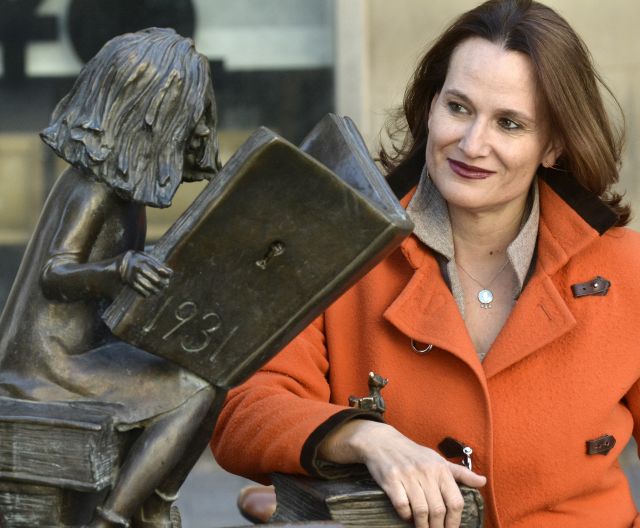 Ruth Rubio Marín is Full Professor of Constitutional Law in the University of Seville, as well as part time professor in the School of Transnational Governance of the European University Institute, where she directs the gender and governance cluster. In addition, Rubio Marín is Director of the UNESCO Chair in Interculturality and Human Rights hosted at the International University of Andalucía. Her research interests focus on Comparative Constitutional Law, Immigration and Nationality Law; Law and Feminist Jurisprudence; Linguistic Rights, Minority Rights, Citizenship Theory; Political Theory, Human Rights and Transitional Justice. She has been coordinator of several European research projects, such as the project Women and Norm Creation: Towards Parity Governance?, funded by the EUI Research Council, January-December 2015 and the project Building State Legitimacy in Transitional Contexts, funded by the EUI Research Council, January-December 2015. Her most recent publications include monographs, such as Women as Constitution Makers: Case Studies from the New Democratic Era (with Helen Irving, eds.) Cambridge University Press, forthcoming, 2019 and Gender Parity and Multicultural Feminism: Towards a New Synthesis (with Will Kymlicka, eds) (Oxford University Press, 2018) ; as well as chapters such as “Completing the Unfinished Task? Gender Quotas and the Ongoing Struggle for Women´s Empowerment in Europe” (with Eléonore Lépinard) in Transforming gender citizenship: The irresistible rise of gender quotas in Europe, (with Eleonore Lépinard, eds) (Cambridge University Press, 2018): 1-40; and articles in peer-reviewed journals such as “Notorious RBG”: A conversation with United States Supreme Court Justice Ruth Bader Ginsburg”, International Journal of Constitutional Law – ICON,vol. 15, 2017.
Ruth Rubio Marín is Full Professor of Constitutional Law in the University of Seville, as well as part time professor in the School of Transnational Governance of the European University Institute, where she directs the gender and governance cluster. In addition, Rubio Marín is Director of the UNESCO Chair in Interculturality and Human Rights hosted at the International University of Andalucía. Her research interests focus on Comparative Constitutional Law, Immigration and Nationality Law; Law and Feminist Jurisprudence; Linguistic Rights, Minority Rights, Citizenship Theory; Political Theory, Human Rights and Transitional Justice. She has been coordinator of several European research projects, such as the project Women and Norm Creation: Towards Parity Governance?, funded by the EUI Research Council, January-December 2015 and the project Building State Legitimacy in Transitional Contexts, funded by the EUI Research Council, January-December 2015. Her most recent publications include monographs, such as Women as Constitution Makers: Case Studies from the New Democratic Era (with Helen Irving, eds.) Cambridge University Press, forthcoming, 2019 and Gender Parity and Multicultural Feminism: Towards a New Synthesis (with Will Kymlicka, eds) (Oxford University Press, 2018) ; as well as chapters such as “Completing the Unfinished Task? Gender Quotas and the Ongoing Struggle for Women´s Empowerment in Europe” (with Eléonore Lépinard) in Transforming gender citizenship: The irresistible rise of gender quotas in Europe, (with Eleonore Lépinard, eds) (Cambridge University Press, 2018): 1-40; and articles in peer-reviewed journals such as “Notorious RBG”: A conversation with United States Supreme Court Justice Ruth Bader Ginsburg”, International Journal of Constitutional Law – ICON,vol. 15, 2017.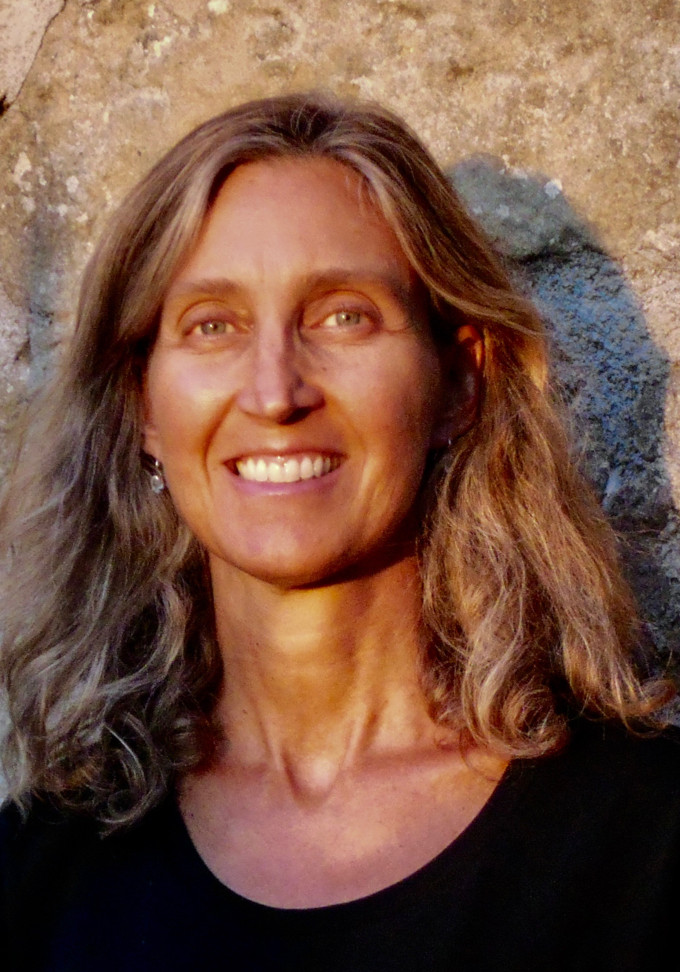 Emanuela Lombardo is Associate Professor of Political Science at the Complutense University of Madrid. Her lines of research are equality policies, especially adoption and implementation, Europeanization, and, more recently, populism and democratic decline from a gender perspective. She directs the Gender and Politics research group (GEYPO ref. 970799) with María Bustelo and participates in the Horizon Europe CCINDLE project on democracy and feminism as PI of a WP and the UCM team (2022-2026). Her latest monographs are Gender and Political Analysis (with Johanna Kantola, Palgrave, 2017) and The Symbolic Representation of Gender (with Petra Meier, Ashgate, 2014). She has published articles in the European Journal of Political Research, Journal of Common Market Studies, Social Politics, Policy & Politics, International Political Science Review, and Policy and Society. She has edited the special issues ‘De-democratization and opposition to gender equality politics in Europe’ (Social Politics 2021, with Johanna Kantola and Ruth Rubio), ‘Populism and Feminist Politics’ (International Political Science Review 2020, with Johanna Kantola), ‘Care policies in practice’ (Policy and Society 28, 4, 2019, with Rossella Ciccia) and ‘Policymaking from a Gender + Equality Perspective’ (Journal of Women, Politics and Policy, 38, 1, 2017, with Petra Meier and Mieke Verloo). She has directed and participated in different national and international research projects and carried out research visits at the universities of Radboud (NL), Antwerp (B), and Aalborg (DK). She has been recognised three research ‘sexenies’ and an ‘outstanding research trayectory’ according to ANEP I3 Program. She has been a coordinator for the evaluation of gender research projects in the social sciences panel of the National Research Agency (2018-2021) and an elected member of the Board of Directors for the Spanish Political Science Association AECPA (2013-2017 and 2017-2022).
Emanuela Lombardo is Associate Professor of Political Science at the Complutense University of Madrid. Her lines of research are equality policies, especially adoption and implementation, Europeanization, and, more recently, populism and democratic decline from a gender perspective. She directs the Gender and Politics research group (GEYPO ref. 970799) with María Bustelo and participates in the Horizon Europe CCINDLE project on democracy and feminism as PI of a WP and the UCM team (2022-2026). Her latest monographs are Gender and Political Analysis (with Johanna Kantola, Palgrave, 2017) and The Symbolic Representation of Gender (with Petra Meier, Ashgate, 2014). She has published articles in the European Journal of Political Research, Journal of Common Market Studies, Social Politics, Policy & Politics, International Political Science Review, and Policy and Society. She has edited the special issues ‘De-democratization and opposition to gender equality politics in Europe’ (Social Politics 2021, with Johanna Kantola and Ruth Rubio), ‘Populism and Feminist Politics’ (International Political Science Review 2020, with Johanna Kantola), ‘Care policies in practice’ (Policy and Society 28, 4, 2019, with Rossella Ciccia) and ‘Policymaking from a Gender + Equality Perspective’ (Journal of Women, Politics and Policy, 38, 1, 2017, with Petra Meier and Mieke Verloo). She has directed and participated in different national and international research projects and carried out research visits at the universities of Radboud (NL), Antwerp (B), and Aalborg (DK). She has been recognised three research ‘sexenies’ and an ‘outstanding research trayectory’ according to ANEP I3 Program. She has been a coordinator for the evaluation of gender research projects in the social sciences panel of the National Research Agency (2018-2021) and an elected member of the Board of Directors for the Spanish Political Science Association AECPA (2013-2017 and 2017-2022).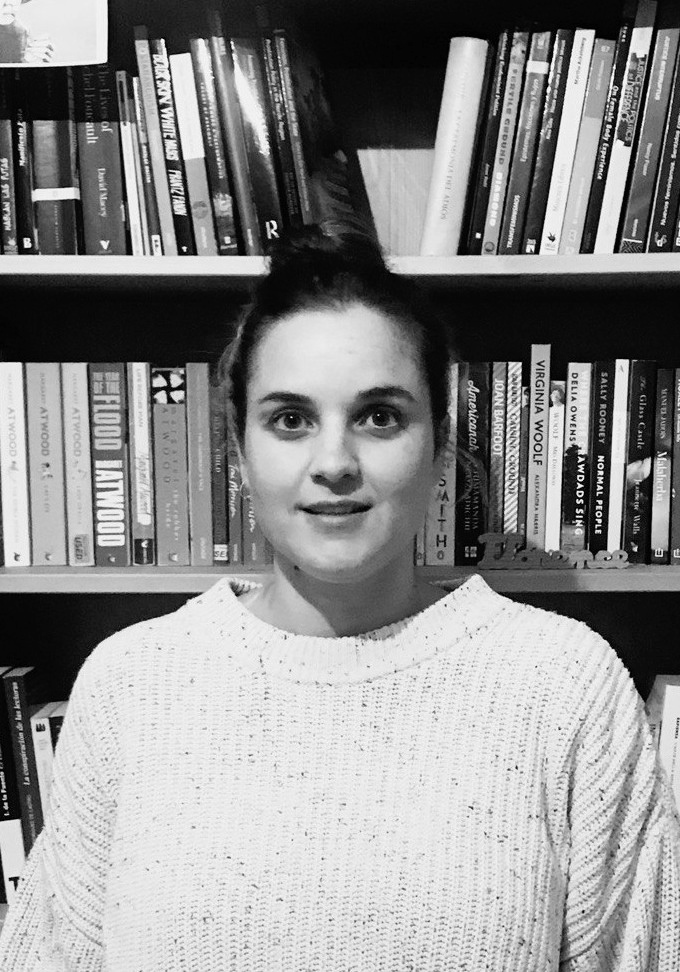 Lucrecia Rubio Grundell is Doctor in Political and Social Sciences by the European University Institute in Florence, where she defended her dissertation titled The Dynamics of Securitisation and Desecuritisation underpinning the EU’s Anti-Trafficking Policies: Trafficking in Women for Sexual Exploitation, in 2018. Since then, she has been a postdoctoral researcher in the Université Libre de Bruxelles, in the project titled Governing values, governing through values, governed by values? (valEUR); in the Universidad Autónoma de Madrid, in the project titled Women on the move and their right to a life free of violence and discrimination: recommendations for a local policy for the city of Madrid with a human rights, gender and intersectionality approach, and in the Universidad Complutense de Madrid in the project titled Gender-based violence and institutional responses: Building a knowledge base and operational tools to make universities and research organisations safe (UNISAFE). Currently, she is holds a UNA4CAREER postdoctoral grant in the Universidad Complutense de Madrid, where she develops her project titled Opposition to Gender+ Equality in Europe and the role of the EU: A Case Study Analysis. Her research interests lie at the intersection of human rights, gender, intersectionality, migration and sex work, on which she has published in journals such as the European Journal of Women Studies and Social Politics.
Lucrecia Rubio Grundell is Doctor in Political and Social Sciences by the European University Institute in Florence, where she defended her dissertation titled The Dynamics of Securitisation and Desecuritisation underpinning the EU’s Anti-Trafficking Policies: Trafficking in Women for Sexual Exploitation, in 2018. Since then, she has been a postdoctoral researcher in the Université Libre de Bruxelles, in the project titled Governing values, governing through values, governed by values? (valEUR); in the Universidad Autónoma de Madrid, in the project titled Women on the move and their right to a life free of violence and discrimination: recommendations for a local policy for the city of Madrid with a human rights, gender and intersectionality approach, and in the Universidad Complutense de Madrid in the project titled Gender-based violence and institutional responses: Building a knowledge base and operational tools to make universities and research organisations safe (UNISAFE). Currently, she is holds a UNA4CAREER postdoctoral grant in the Universidad Complutense de Madrid, where she develops her project titled Opposition to Gender+ Equality in Europe and the role of the EU: A Case Study Analysis. Her research interests lie at the intersection of human rights, gender, intersectionality, migration and sex work, on which she has published in journals such as the European Journal of Women Studies and Social Politics.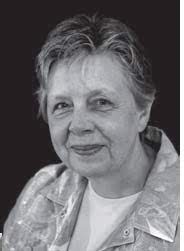 Mieke Verloo is Professor of Comparative Politics and Inequality Issues at Radboud University in the Netherlands, and Non-Residential Permanent Fellow at the IWM, Institute for Human Sciences in Vienna. She is the winner of the 2015 ECPG Gender and Politics Career Achievement Award. She was scientific director of large research projects on gender equality policymaking in Europe (see www.mageeq.net and www.quing.eu). She has extensive consultancy and training experience on gender mainstreaming and intersectionality for several European governments and institutions. Among her latest publications are: the edited volume on Varieties of opposition to gender equality in Europe published by Routledge (2018), and the special issue ‘The feminist project under threat in Europe” in Politics and Governance, co-edited with David Paternotte. Her recent work is on the complex relationship between democracy and gender+ equality.
Mieke Verloo is Professor of Comparative Politics and Inequality Issues at Radboud University in the Netherlands, and Non-Residential Permanent Fellow at the IWM, Institute for Human Sciences in Vienna. She is the winner of the 2015 ECPG Gender and Politics Career Achievement Award. She was scientific director of large research projects on gender equality policymaking in Europe (see www.mageeq.net and www.quing.eu). She has extensive consultancy and training experience on gender mainstreaming and intersectionality for several European governments and institutions. Among her latest publications are: the edited volume on Varieties of opposition to gender equality in Europe published by Routledge (2018), and the special issue ‘The feminist project under threat in Europe” in Politics and Governance, co-edited with David Paternotte. Her recent work is on the complex relationship between democracy and gender+ equality.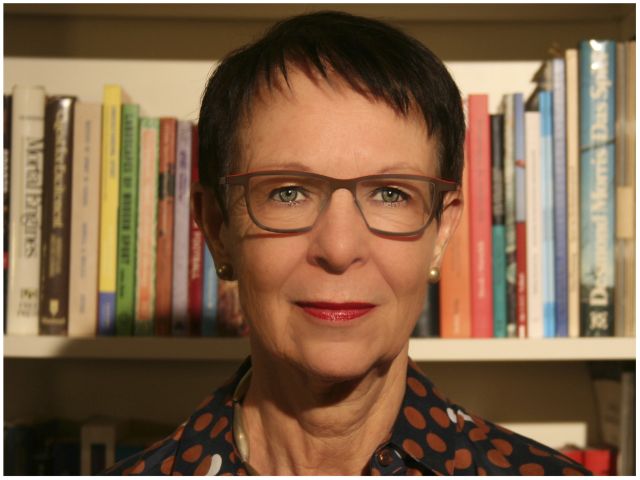 Birgit Sauer is professor at the Department of Political Science at the University of Vienna, Austria. She has published on gender, governance and democracy, on gender and right-wing populism and on affective labour and state transformation. She was member oft he Executive Committee of European Consortium for Political Research. She held visiting professorships in Seoul (South Korea), Florida Atlantic University (USA), Södertörn University (Sweden). Recent publications include: Gender and Citizenship: Governing Muslim Body Covering in Europe, in: Gemzöe, Lena et al. (eds.): Contemporary Encounters in Gender and Religion. European Perspectives, Cham: Palgrave MacMillan, 2016, p. 105-129; Intersections and inconsistencies. Framing Gender in Right-Wing Populist Discourses in Austria, in: NORA. Nordic Journal of Feminist and Gender Research, 2014, together with Edma Ajanovic and Stefanie Mayer; Affective governmentality: A feminist perspective, in: Hudson, Christine/Rönnblom, Malin/Teghtsoonian, Katherine (eds.): Gender, Governance and Feminist Analysis. Missing in Action?, London/New York: Routledge 2017, p. 39-58, together with Otto Penz.
Birgit Sauer is professor at the Department of Political Science at the University of Vienna, Austria. She has published on gender, governance and democracy, on gender and right-wing populism and on affective labour and state transformation. She was member oft he Executive Committee of European Consortium for Political Research. She held visiting professorships in Seoul (South Korea), Florida Atlantic University (USA), Södertörn University (Sweden). Recent publications include: Gender and Citizenship: Governing Muslim Body Covering in Europe, in: Gemzöe, Lena et al. (eds.): Contemporary Encounters in Gender and Religion. European Perspectives, Cham: Palgrave MacMillan, 2016, p. 105-129; Intersections and inconsistencies. Framing Gender in Right-Wing Populist Discourses in Austria, in: NORA. Nordic Journal of Feminist and Gender Research, 2014, together with Edma Ajanovic and Stefanie Mayer; Affective governmentality: A feminist perspective, in: Hudson, Christine/Rönnblom, Malin/Teghtsoonian, Katherine (eds.): Gender, Governance and Feminist Analysis. Missing in Action?, London/New York: Routledge 2017, p. 39-58, together with Otto Penz.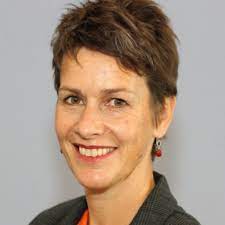 Conny Roggeband lectures at the Department of Political Science of the University of Amsterdam. Her research interests include gender mainstreaming and equality policies, gender-based violence, social movements and transnational feminist networking. Her current work deals with democratic backsliding and the implications for gender equality. She co-authored (with Andrea Krizsan) The Gender Politics of Domestic Violence. Feminists Engaging the State in Central and Eastern Europe (Routledge 2017). She edited (together with Bert Klandermans) The Handbook of Social Movements Across Disciplines (Springer 2017); with Anna van der Vleuten and Anouka van Eerdewijk Gender Equality Norms in Regional Governance: Transnational Dynamics in Europe, South America and Southern Africa (Palgrave 2014), and with Jacquelien van Stekelenburg and Bert Klandermans The Future of Social Movement Research: Dynamics, Mechanisms and Processes (University of Minnesota Press 2013).
Conny Roggeband lectures at the Department of Political Science of the University of Amsterdam. Her research interests include gender mainstreaming and equality policies, gender-based violence, social movements and transnational feminist networking. Her current work deals with democratic backsliding and the implications for gender equality. She co-authored (with Andrea Krizsan) The Gender Politics of Domestic Violence. Feminists Engaging the State in Central and Eastern Europe (Routledge 2017). She edited (together with Bert Klandermans) The Handbook of Social Movements Across Disciplines (Springer 2017); with Anna van der Vleuten and Anouka van Eerdewijk Gender Equality Norms in Regional Governance: Transnational Dynamics in Europe, South America and Southern Africa (Palgrave 2014), and with Jacquelien van Stekelenburg and Bert Klandermans The Future of Social Movement Research: Dynamics, Mechanisms and Processes (University of Minnesota Press 2013).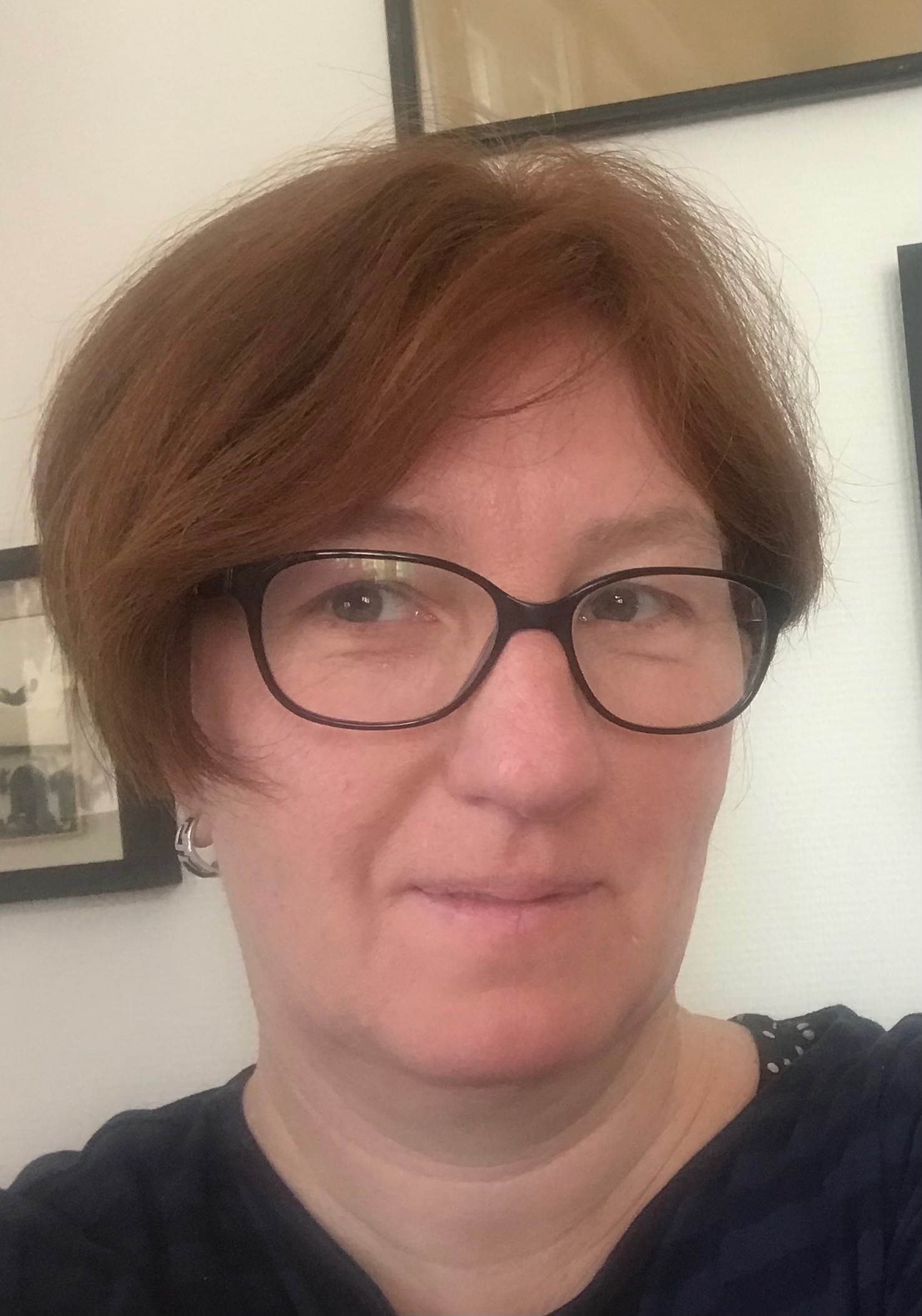 Andrea Krizsan is Research Fellow at the Central European University, Center for Policy Studies since 2001. She is interested in understanding policy change in countries of Central and Eastern Europe. She works on different equality policy fields including gender equality policy, policies on gender based violence, policies addressing ethnic inequalities and intersectionality. Her current research aims to understand the politics of policy backsliding in times of crisis and forms of resistance to such reversal particularly in countries of the Central and Eastern European region. Her most recent book with C.M. Roggeband analysed domestic violence policy reforms in five Central and Eastern European countries (Routledge, 2018). Her publications include articles in Politics and Governance, European Journal of Politics and Gender, Violence against Women, Journal of International and Comparative Social Policy, Ethnic and Racial Studies, Social Politics, and Journal for Ethnic and Minority Studies and chapters in several edited volumes. She edited a volume on women's movements mobilizing for policy change (2015), ethnic monitoring and data collection (2001) and co-edited one with J. Squires and H. Skjeie on institutionalizing intersectionality and the changing nature of European equality regimes (2012). Besides her academic work Andrea also acts as the Chair of the CEU Senate Equal Opportunity Committee. She leads the CEU team of the SUPERA Project - Supporting the Promotion of Equality in Research and Academia. Andrea has a PhD in Political Science from the Central European University.
Andrea Krizsan is Research Fellow at the Central European University, Center for Policy Studies since 2001. She is interested in understanding policy change in countries of Central and Eastern Europe. She works on different equality policy fields including gender equality policy, policies on gender based violence, policies addressing ethnic inequalities and intersectionality. Her current research aims to understand the politics of policy backsliding in times of crisis and forms of resistance to such reversal particularly in countries of the Central and Eastern European region. Her most recent book with C.M. Roggeband analysed domestic violence policy reforms in five Central and Eastern European countries (Routledge, 2018). Her publications include articles in Politics and Governance, European Journal of Politics and Gender, Violence against Women, Journal of International and Comparative Social Policy, Ethnic and Racial Studies, Social Politics, and Journal for Ethnic and Minority Studies and chapters in several edited volumes. She edited a volume on women's movements mobilizing for policy change (2015), ethnic monitoring and data collection (2001) and co-edited one with J. Squires and H. Skjeie on institutionalizing intersectionality and the changing nature of European equality regimes (2012). Besides her academic work Andrea also acts as the Chair of the CEU Senate Equal Opportunity Committee. She leads the CEU team of the SUPERA Project - Supporting the Promotion of Equality in Research and Academia. Andrea has a PhD in Political Science from the Central European University.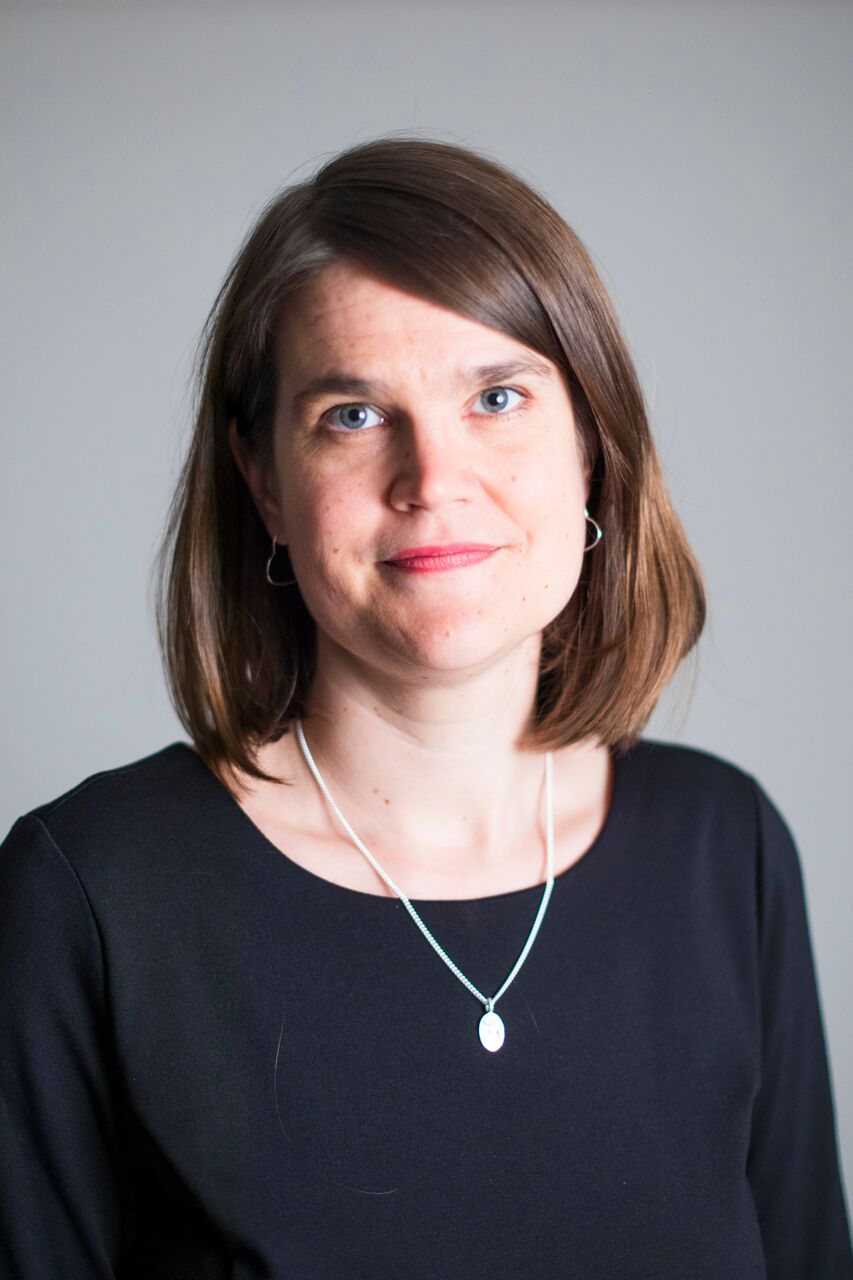 Johanna Kantola is Professor of Gender Studies in the Faculty of Social Sciences at the University of Tampere. She obtained my PhD in Politics at the University of Bristol in 2004 and became Docent in Politics at the University of Helsinki in 2007. Her research centres on gender, power and politics: political parties and institutions, gender equality policies in Finland and in the EU, and theoretical questions about the state, representation and intersectionality. She is the director of the ERC Consolidator Grant (2018-2023) funded research project Gender, party politics and democracy in Europe: A study of European Parliament’s party groups (EUGenDem). She is also the director of the Academy of Finland (2016-2020) and University of Helsinki Research Funds (2015-2017) funded research project Gender and Power in Reconfigured Corporatist Finland (GePoCo). Her books include Gender and Political Analysis (with Emanuela Lombardo, Palgrave, 2017), Gender and the European Union (Palgrave, 2010) and Feminists Theorize the State (Palgrave, 2006). I have co-edited The Oxford Handbook on Gender and Politics (Oxford University Press, 2013, with Georgina Waylen, Karen Celis and Laurel Weldon), Gender and the Economic Crisis in Europe: Politics, Institutions and Intersectionality (Palgrave 2017, with Emanuela Lombardo), Tasa-arvo toisin nähtynä: Oikeuden ja politiikan näkökulmia tasa-arvoon ja yhdenvertaisuuteen (Gaudeamus, 2012, with Kevät Nousiainen and Milja Saari) and Changing State Feminism (Palgrave, 2007, with Joyce Outshoorn). She is the Editor of Palgrave Macmillan’s Gender and Politics Book Series with Sarah Childs. Neil Datta is the Founder and Secretary of the European Parliamentary Forum on Sexual and Reproductive Rights (EPF) since 2004. EPF is a network of parliamentarians from across Europe who are committed to championing women’s sexual and reproductive health and rights. Neil founded the organisation with a select group of parliamentarians and with the support of IPPF in 2000, and has been responsible for its growth to its current membership of 30 all-party parliamentary groups on population and development issues. Neil has over fifteen years experience in the field of political involvement in population and development. Throughout this period he has conducted in-depth research on anti-choice activity in Europe. Before becoming EPF Secretary, Neil coordinated the Parliamentary Programme of the International Planned Parenthood Federation European Network. Neil holds a Master's Degree in European Public Administration from the College of Europe in Bruges and a Bachelor of Arts in History and Languages from the State University of New York at Binghamton. Neil holds 5 nationalities (British, French, Indian, USA and Canada) and is bilingual English/French. Neil is a member of the European Feminist Platform.
Johanna Kantola is Professor of Gender Studies in the Faculty of Social Sciences at the University of Tampere. She obtained my PhD in Politics at the University of Bristol in 2004 and became Docent in Politics at the University of Helsinki in 2007. Her research centres on gender, power and politics: political parties and institutions, gender equality policies in Finland and in the EU, and theoretical questions about the state, representation and intersectionality. She is the director of the ERC Consolidator Grant (2018-2023) funded research project Gender, party politics and democracy in Europe: A study of European Parliament’s party groups (EUGenDem). She is also the director of the Academy of Finland (2016-2020) and University of Helsinki Research Funds (2015-2017) funded research project Gender and Power in Reconfigured Corporatist Finland (GePoCo). Her books include Gender and Political Analysis (with Emanuela Lombardo, Palgrave, 2017), Gender and the European Union (Palgrave, 2010) and Feminists Theorize the State (Palgrave, 2006). I have co-edited The Oxford Handbook on Gender and Politics (Oxford University Press, 2013, with Georgina Waylen, Karen Celis and Laurel Weldon), Gender and the Economic Crisis in Europe: Politics, Institutions and Intersectionality (Palgrave 2017, with Emanuela Lombardo), Tasa-arvo toisin nähtynä: Oikeuden ja politiikan näkökulmia tasa-arvoon ja yhdenvertaisuuteen (Gaudeamus, 2012, with Kevät Nousiainen and Milja Saari) and Changing State Feminism (Palgrave, 2007, with Joyce Outshoorn). She is the Editor of Palgrave Macmillan’s Gender and Politics Book Series with Sarah Childs. Neil Datta is the Founder and Secretary of the European Parliamentary Forum on Sexual and Reproductive Rights (EPF) since 2004. EPF is a network of parliamentarians from across Europe who are committed to championing women’s sexual and reproductive health and rights. Neil founded the organisation with a select group of parliamentarians and with the support of IPPF in 2000, and has been responsible for its growth to its current membership of 30 all-party parliamentary groups on population and development issues. Neil has over fifteen years experience in the field of political involvement in population and development. Throughout this period he has conducted in-depth research on anti-choice activity in Europe. Before becoming EPF Secretary, Neil coordinated the Parliamentary Programme of the International Planned Parenthood Federation European Network. Neil holds a Master's Degree in European Public Administration from the College of Europe in Bruges and a Bachelor of Arts in History and Languages from the State University of New York at Binghamton. Neil holds 5 nationalities (British, French, Indian, USA and Canada) and is bilingual English/French. Neil is a member of the European Feminist Platform. Neil Dattais the Founder and Secretary of the European Parliamentary Forum on Sexual and Reproductive Rights (EPF)since 2004. EPF is a network of parliamentarians from across Europe who are committed to championing women’s sexual and reproductive health and rights. Neil founded the organisation with a select group of parliamentarians and with the support of IPPF in 2000, and has been responsible for its growth to its current membership of 30 all-party parliamentary groups on population and development issues. Neil has over fifteen years experience in the field of political involvement in population and development. Throughout this period he has conducted in-depth research on anti-choice activity in Europe. Before becoming EPF Secretary, Neil coordinated the Parliamentary Programme of the International Planned Parenthood Federation European Network. Neil holds a Master's Degree in European Public Administration from the College of Europe in Bruges and a Bachelor of Arts in History and Languages from the State University of New York at Binghamton. Neil holds 5 nationalities (British, French, Indian, USA and Canada) and is bilingual English/French. Neil is a member of the European Feminist Platform.
Neil Dattais the Founder and Secretary of the European Parliamentary Forum on Sexual and Reproductive Rights (EPF)since 2004. EPF is a network of parliamentarians from across Europe who are committed to championing women’s sexual and reproductive health and rights. Neil founded the organisation with a select group of parliamentarians and with the support of IPPF in 2000, and has been responsible for its growth to its current membership of 30 all-party parliamentary groups on population and development issues. Neil has over fifteen years experience in the field of political involvement in population and development. Throughout this period he has conducted in-depth research on anti-choice activity in Europe. Before becoming EPF Secretary, Neil coordinated the Parliamentary Programme of the International Planned Parenthood Federation European Network. Neil holds a Master's Degree in European Public Administration from the College of Europe in Bruges and a Bachelor of Arts in History and Languages from the State University of New York at Binghamton. Neil holds 5 nationalities (British, French, Indian, USA and Canada) and is bilingual English/French. Neil is a member of the European Feminist Platform. Conferences/Conferencias
1. DE-DEMOCRATISATION, GENDER+ AND THE POLITICS OF EXCLUSION
Baeza, Jaen, Spain, November 6-8, 2019
Particiants/Participantes:
Marta Cabezas has a doctorate in Social Anthropology, a Specialist in Gender Studies and a Law Degree. She is currently an InterTalentum-Marie Curie postdoctoral researcher at the Institute of Women's Studies of the Autonomous University of Madrid, with the project "Women's Human Rights in the State Labyrinth. A Contribution from Social Anthropplogy to the Analysys of Gender Violence Public Policy in Spain ". She carried out her doctoral thesis in the Bolivian Parliament analyzing, from an intersectional point of view, the transformations in the politics of women's rights after the crisis of the neoliberal project. She has been a professor and researcher in the International Relations program of FLACSO Ecuador and in the School of Public Management of the Institute of Higher National Studies in the same country. Throughout her career, she has combined an academic career with participation in different international solidarity projects and organizations in Latin America and the Maghreb. She currently resides in Madrid.
Mónica Cornejo is Associate Professor at the Social Anthropology Department of the Complutense University of Madrid. She is co-director of the research group Anthropology, Diversity and Integration. She has studied about popular Catholicism and religion in public spaces as well as the religious fights against sexual and reproductive rights. She is the author and editor of several books (such as “La Construcción Antropológica de la Religión”, Ministerio de Cultura) and she is contributor in many others (such as “Gender and Power in Contemporary Spirituality: Ethnographic Approaches”, Routledge). Recently, she has authored (with Jose Ignacio Pichardo) papers like “From the pulpit to the streets. Religious activism against gender issues in Spain” (in David Paternotte and Roman Kuhar Anti-Gender Campaigns in Europe. Mobilizing against Equality, Rowman & Littlefield Pub), “Une décennie de croisade anti-genre en Espagne (2004-2014)” (Revue Sextant), or “La ideología de género frente a los derechos sexuales y reproductivos” (Cadernos Pagu).
Myra Marx Ferree is the Alice H. Cook Professor of Sociology emerita at the University of Wisconsin-Madison and a member of the Gender and Women’s Studies Department. Her books include Varieties of Feminism: German Gender Politics in Global Perspective (2012), Gender, Violence and Human Security with Aili Tripp and Christina Ewig (2013), and Gender: Ideas, Interactions and Institutions with Lisa Wade (2014, second edition 2018). Her numerous articles cover feminist organizations and politics, as well as gender inequality in families, the inclusion of gender in sociological theory and practice, and intersections of gender with race and class.
Julia Espinosa Fajardo is a Sociologist and PhD in Political Science from the Complutense University of Madrid. In her ten years of professional experience, her activity has been linked to research, evaluation of public policies and training in international development and gender equality. In this line, she has worked for different public administrations, civil society organizations, universities and research centers both in Europe and in Latin America. Its main motivations have been and are to promote reflection and critical analysis on issues related to public policies, international development and gender in order to contribute to a greater understanding of public action and the role of citizens in processes of social change.
Lina Gálvez Muñoz (Phd. European University Institute), Economic History and Institutions Full Professor at Pablo de Olavide University. She has studied at the universities of Seville, Lyon, LSE and the EUI, and she has been professor at the universities of Reading, Carlos III and as a visiting professor at Oxford University. Director of the Masters program on Gender and Equality and on Human Rights, Interculturality and Development at Pablo de Olavide University. She is also the director of the gender observatory: GEP&DO (www.genderobservatory.com), From 2007 to 2011 she was Vice-rector of Graduate Studies at the Pablo de Olavide University and from 2018 to 2019 she was “Knowledge, Research and Universities” Regional Minister in Andalusia. She has more than hundred scientific publications on Feminist Economics, Economic History, Gender, work and time use, Economic crisis and austerity policies. She has coordinated few research projects and supervised eight Ph.D thesis. She has received several prizes as the Ramón Carande one for the best Economic history article (1999), the Meridiana Prize (2011) and the Emilio Castelar Prize (2014), for her commitment with gender equality.
Johanna Kantola is Professor of Gender Studies in the Faculty of Social Sciences at the University of Tampere. She obtained my PhD in Politics at the University of Bristol in 2004 and became Docent in Politics at the University of Helsinki in 2007. Her research centres on gender, power and politics: political parties and institutions, gender equality policies in Finland and in the EU, and theoretical questions about the state, representation and intersectionality. She is the director of the ERC Consolidator Grant (2018-2023) funded research project Gender, party politics and democracy in Europe: A study of European Parliament’s party groups (EUGenDem). She is also the director of the Academy of Finland (2016-2020) and University of Helsinki Research Funds (2015-2017) funded research project Gender and Power in Reconfigured Corporatist Finland (GePoCo). Her books include Gender and Political Analysis (with Emanuela Lombardo, Palgrave, 2017), Gender and the European Union (Palgrave, 2010) and Feminists Theorize the State (Palgrave, 2006). I have co-edited The Oxford Handbook on Gender and Politics (Oxford University Press, 2013, with Georgina Waylen, Karen Celis and Laurel Weldon), Gender and the Economic Crisis in Europe: Politics, Institutions and Intersectionality (Palgrave 2017, with Emanuela Lombardo), Tasa-arvo toisin nähtynä: Oikeuden ja politiikan näkökulmia tasa-arvoon ja yhdenvertaisuuteen (Gaudeamus, 2012, with Kevät Nousiainen and Milja Saari) and Changing State Feminism (Palgrave, 2007, with Joyce Outshoorn). She is the Editor of Palgrave Macmillan’s Gender and Politics Book Series with Sarah Childs.
Andrea Krizsan is Research Fellow at the Central European University, Center for Policy Studies since 2001. She is interested in understanding policy change in countries of Central and Eastern Europe. She works on different equality policy fields including gender equality policy, policies on gender based violence, policies addressing ethnic inequalities and intersectionality. Her current research aims to understand the politics of policy backsliding in times of crisis and forms of resistance to such reversal particularly in countries of the Central and Eastern European region. Her most recent book with C.M. Roggeband analysed domestic violence policy reforms in five Central and Eastern European countries (Routledge, 2018). Her publications include articles in Politics and Governance, European Journal of Politics and Gender, Violence against Women, Journal of International and Comparative Social Policy, Ethnic and Racial Studies, Social Politics, and Journal for Ethnic and Minority Studies and chapters in several edited volumes. She edited a volume on women's movements mobilizing for policy change (2015), ethnic monitoring and data collection (2001) and co-edited one with J. Squires and H. Skjeie on institutionalizing intersectionality and the changing nature of European equality regimes (2012). Besides her academic work Andrea also acts as the Chair of the CEU Senate Equal Opportunity Committee. She leads the CEU team of the SUPERA Project - Supporting the Promotion of Equality in Research and Academia. Andrea has a PhD in Political Science from the Central European University.
Eszter Kováts holds a BA in sociology, an MA in French and German Studies and in Political Science. She is a PhD student at the Institute for Political Science, Faculty of Law, University ELTE, Budapest. She has been working in the Hungarian Office of the German political foundation Friedrich-Ebert-Stiftung (FES) since 2009, and since 2012 she is responsible for the Foundation’s gender program for East-Central Europe. In 2015 she co-edited the volume "Gender as Symbolic Glue. The position and role of conservative and far right parties in the anti-gender mobilizations in Europe" (published by FES and Foundation for European Progressive Studies). In 2016 she edited the volume "Solidarity in Struggle – Feminist Perspectives on Neoliberalism in East-Central Europe", and in 2017 "The Future of the European Union – Feminist Perspectives from East-Central Europe" (both published by FES and online available).
Petra Meier is Professor in Politics at the Department of Political Sciences, University of Antwerp. Her research focuses on the representation of gender in politics and policies, with a special interest in the institutions and mechanisms (re)producing relations of socio-demographic inequality. She lately worked and published on the relevance of symbolic representation as well as on the relation between processes of federalization and democracy.
Martjin Mos is an Assistant Professor of International Relations at Leiden University. His research focuses on the contestation of international norms, in particular with reference to LGBTI rights, gender equality and national minority rights in the European Union.
Claudia Padovani is PhD is Associate Professor in Political Science and International Relations at the University of Padova (Italy) where she teach courses in International Communication and Communication Governance and Transnational Networks. Her main areas of interest concern the transformation of political processes in the global context and their connection to the evolution of communication processes and technologies, with a particular focus on gender equality issues, communication rights and social justice. Padovani is currently working on strengthening a global research agenda to focus on gender mainstreaming in media and digital policies, through the analytical proposal of a ‘media gender equality regime’ approach. Relevant recent publications are: Gender Equality and the Media: A Challenge for Europe (with K. Ross, 2017, Routledge); “Gendering media policy research and communication governance” (in Janvost. The Public, Vol 25, 2018). She has coordinated the Italian team of the Global Media Monitoring Project since 2000; has participated as senior researcher in a pan-European project, funded by the European Institute for Gender Equality on “Advancing gender equality in decision-making in media organizations” (2013); and is currently involved in a EU-funded project on Advancing Gender Equality in Media Industries (AGEMI, 2017-2019) on the dissemination of good practices for gender equality in the media and ICT.
David Paternotte is Assistant Professor of Sociology at the Université libre de Bruxelles, where he convenes the Atelier Genre(s) and Sexualité(s) and is the coeditor of the journal Sextant. His dissertation examined the advocacy of same-sex marriage in Belgium, France and Spain. Nowadays, he studies the processes of Europeanisation, globalisation and NGOisation of LGBT activism. He has recently started a project on new forms of resistances to gender, feminist claims and LGBT rights, with a focus on the Catholic Church. He is a board of the Council for Gender Equality of the Region of Brussels, and the cochair of the Gender and Sexuality Research Network of the Council for European Studies. He visited numerous universities as a guest researcher or a guest lecturer, including the Université de Montréal, the University of Cambridge, the London School of Economics and Political Science, the European University Institute, the Universiteit van Amsterdam, the Universidad Complutense de Madrid, the Universitat de Barcelona and the Universidad Academia de Humanismo Cristiano (Chile).
Elena Pavan is Senior Assistant Professor at the Department of Sociology and Social Research of the University of Trento. She holds a degree in Communication Sciences (University of Padova, 2004) and a PhD in Sociology (University of Trento, 2009). Her most recent research interests pertain to the relationships between collective action/political participation and digital media use. Within this area, she is working interdisciplinary combining technical and social knowledges as well as traditional qualitative and quantitative research methods with digital methods and big data approaches.
Jose Ignacio Pichardo is Associate Professor (Profesor Titular) in the Social Anthropology and Social Psicology Department of Universidad Complutense de Madrid (UCM). Vice-Dean of the Faculty of Social Work, Head for International Affairs. Implemented and coordinated the UCM Office of Sexual Diversity and Gender Identity (LGBT+). Graduate and Doctor in Social Anthropology from Universidad Autónoma de Madrid. Teaches classes on Anthropology of Gender. Has undertaken research and/or teaching stays at San Francisco State University, Laboratoire de Sciences Sociales in Paris, Université du Québec à Montréal, Universidade Estadual Paulista, Universidad de Buenos Aires, Western Sydney University and was awarded the post of Visiting Professor at Università di Foggia (Italy) in 2016. Co-director of the Anthropology, Diversity and Integration Research Group. His own research projects focus on issues of kinship, family, sexuality, gender and interculturality. Has completed and published various investigations into sexual diversity, lesbian women and human rights, “gender ideology” discourses against women and LGBTQI rights, gay and lesbian families and, particularly, the situation of gay, lesbian, bisexual and trans adolescents in educational environments.
Conny Roggeband lectures at the Department of Political Science of the University of Amsterdam. Her research interests include gender mainstreaming and equality policies, gender-based violence, social movements and transnational feminist networking. Her current work deals with democratic backsliding and the implications for gender equality. She co-authored (with Andrea Krizsan) The Gender Politics of Domestic Violence. Feminists Engaging the State in Central and Eastern Europe (Routledge 2017). She edited (together with Bert Klandermans) The Handbook of Social Movements Across Disciplines (Springer 2017); with Anna van der Vleuten and Anouka van Eerdewijk Gender Equality Norms in Regional Governance: Transnational Dynamics in Europe, South America and Southern Africa (Palgrave 2014), and with Jacquelien van Stekelenburg and Bert Klandermans The Future of Social Movement Research: Dynamics, Mechanisms and Processes (University of Minnesota Press 2013).
Birgit Sauer is professor at the Department of Political Science at the University of Vienna, Austria. She has published on gender, governance and democracy, on gender and right-wing populism and on affective labour and state transformation. She was member oft he Executive Committee of European Consortium for Political Research. She held visiting professorships in Seoul (South Korea), Florida Atlantic University (USA), Södertörn University (Sweden). Recent publications include: Gender and Citizenship: Governing Muslim Body Covering in Europe, in: Gemzöe, Lena et al. (eds.): Contemporary Encounters in Gender and Religion. European Perspectives, Cham: Palgrave MacMillan, 2016, p. 105-129; Intersections and inconsistencies. Framing Gender in Right-Wing Populist Discourses in Austria, in: NORA. Nordic Journal of Feminist and Gender Research, 2014, together with Edma Ajanovic and Stefanie Mayer; Affective governmentality: A feminist perspective, in: Hudson, Christine/Rönnblom, Malin/Teghtsoonian, Katherine (eds.): Gender, Governance and Feminist Analysis. Missing in Action?, London/New York: Routledge 2017, p. 39-58, together with Otto Penz.
Mieke Verloo is Professor of Comparative Politics and Inequality Issues at Radboud University in the Netherlands, and Non-Residential Permanent Fellow at the IWM, Institute for Human Sciences in Vienna. She is the winner of the 2015 ECPG Gender and Politics Career Achievement Award. She was scientific director of large research projects on gender equality policymaking in Europe (see www.mageeq.net and www.quing.eu). She has extensive consultancy and training experience on gender mainstreaming and intersectionality for several European governments and institutions. Among her latest publications are: the edited volume on Varieties of opposition to gender equality in Europe published by Routledge (2018), and the special issue ‘The feminist project under threat in Europe” in Politics and Governance, co-edited with David Paternotte. Her recent work is on the complex relationship between democracy and gender+ equality.
Birte Siim is Professor Emerita in Gender Research in the Social Sciences, Dept. of Culture and Global Studies, Aalborg University (AAU), Denmark. She has been responsible for the Danish EU teams on citizenship, democracy, gender, migration and populism. Her publications include: Citizens’ Activism and Solidarity Movements: Contending with Populism, 2018 (ed. with A. Saarinen and A. Krasteva); Diversity and Contestation over Nationalism in Europe and Canada, Palgrave, 2018 (ed. with J-E. Fossum and R. Kastoryano); ‘Gendering European welfare states and citizenship - revisioning inequalities’, in P. Kennett and N. Lendvai-Benton (eds.). Handbook of European Social Policy, 2017 (with A. Borchorst); ‘Gender Diversities – Practicing Intersectionality in the European Union’, Ethnicities, 2014 (with L. Rolandsen Agustin); ‘Political Intersectionality and Democratic Politics in the European Public Sphere’, Politics & Gender, 2014; Negotiations of Gender and Diversity in an Emergent European Public Sphere (ed. with M. Mokre) 2013, ‘Citizenship’, in K. Celis et. al. (eds). The Oxford Handbook on Gender and Politics, 2013; Gender and Citizenship. Politics and Agency in France, Britain and Denmark 2000.
2. DE-DEMOCRATISATION, GENDER+ AND THE POLITICS OF EXCLUSION
Sevilla, Spain, June 30, July 1, 2022
Particiants/Participantes:
Alba Alonso is Lecturer at the Department of Political Science of the University of Santiago de Compostela (Spain). Her main research areas refer to the implementation of gender equality policies, federalism, and the women’s movement. Her work has been published in Politics & Gender, Social Politics, European Journal of Women’s Studies, and European Political Science. Currently she is a member of the research project CCINDLE (CO-CREATING INCLUSIVE INTERSECTIONAL DEMOCRATIC SPACES ACROSS EUROPE) funded by Horizon Europe
Levan Berianidze (they/them/theirs) is a queer feminist activist from the Republic of Georgia. They are a graduate of the Social Justice and Human Rights MA program at Arizona State University and the Gender Studies MA program at Central European University. Levan has vast experience in LGBTQI and feminist movements in the Eurasia region, which spans over nine years. As an executive director at Equality Movement, Levan managed to evolve the organization into the largest and the most influential LGBTQI organization in the Caucasian region over a period of four years. As part of their activism, Levan has won strategic cases in the European Court of Human Rights and the Georgian Constitutional Court against the Georgian government for violating the public assembly rights of the LGBTQI community and for discriminatory laws against the LGBTQI community; Levan has organized the largest and the first-ever LGBTQI public demonstrations (IDAHOT) in Tbilisi. After the last homophobic attack on their partner, Levan, and three transgender women, Levan organized an international campaign with HRC and AllOut and pushed the Georgian government to establish a human rights department within the police forces. Moreover, being aware and critical of the challenges caused by NGO-ization of activism, in collaboration with activist friends, Levan started organizing a series of queer events – HOROOM – which has opened up pathways to forming an independent, non-formal, and nonhierarchical queer community in Georgia. With up to 1000 attendees per event, the party series has become one of the most important safe spaces for mobilization, education, and empowerment of the LGBTQI community in Georgia.
Giada Bonu, After attending the Master in Gender Studies and Politics at Roma Tre, she became a PhD student in Political Science and Sociology at the Scuola Normale Superiore, and is part of the Centre for Research on Social Movements (COSMOS). Her research focuses on the relationship between feminist movements and urban space with a focus on participatory methodologies. She is a feminist activist, part of the assembly of Non Una di Meno - Florence, of the editorial board of the feminist journal DWF since 2016 and of the research group Filosofia de Logu on postcolonial approaches to the study of Sardinia. Since 2021 she has also been part of the scientific council of the Gender Studies section of AIS (Italian Sociology Association) and directs, together with Nicolò Bertuzzi and Jacopo Custodi, the series "Il cantiere delle idee" for Castelvecchi Editore.
Kerman Calvo (Phd, Essex University), is an Associate Professor of Sociology at the Universidad de Salamanca. He has been visiting fellow at the ISCTE-Lisboa and Università degli Studi di Milano. He has been senior researcher at Essex University (Human Rights Centre), Universidad Carlos III, Madrid, and Centro de Estudios Políticos y Constitucionales, Madrid. He has taught at Essex University, Saint Louis University, Universitat Pompeu Fabra, and Universitat Oberta de Catalunya. He is head of the Sexual Diversity and Gender Identity Unit at the Universidad de Salamanca, and member of several European research networks on gender and sexual equality policies and of several professional associations.
Damjan Denvoski is the Deputy Executive Director at the Centre for Feminist Foreign Policy, having joined the team in 2020. He is also leading our Universal Human Rights programme, exploring the impact of anti-feminist and anti-gender ideologies on foreign policy, multilateral systems, and human rights, and working towards strengthening civil society collaboration in the protection of the rights of women and LGBTQI* individuals. In addition, he is working on developing intersectional approaches to international cooperation and development policy.
Dorothy Estrada-Tanck is the Vice-Chair of the UN Working Group on discrimination against women and girls. She assumed her functions on 1 November 2020. Dorothy holds a PhD in Law from the European University Institute (Italy), an MSc in Political Theory from the London School of Economics and Political Science (United Kingdom) and a Law Degree from Escuela Libre de Derecho (Mexico). She is currently Assistant Professor of Public International Law and International Relations at the Faculty of Law of University of Murcia (Spain) and Director of its Legal Clinic. Her academic and professional activities have focused on international human rights law, human security, women’s rights, gender equality and violence against women, human rights of migrants and refugees, persons with disabilities, indigenous peoples, and economic, social and cultural rights. She holds 15 years of professional experience: Ministry of Foreign Affairs (Mexico); UN Office of the High Commissioner for Human Rights; Mexico City Human Rights Commission; UN Women/Mexican Supreme Court/Inmujeres; Case Matrix Network (Centre for International Law Research and Policy); and the NGO Fundación CEPAIM (Spain). She has published extensively, including Human Security and Human Rights under International Law: The Protections Offered to Persons Confronting Structural Vulnerability (Hart Publishing, Oxford, 2016; Best Book Award 2017 of the Inter-American Bar Association, Washington, D.C.). She has taught and conducted research at institutions in Mexico, Italy, the U.S, Spain and Canada, including at Escuela Libre de Derecho, Universidad Iberoamericana (Mexico), Fordham School of Law (New York), IE Law School, ICADE (Madrid), the Centre for Human Rights and Legal Pluralism at the Faculty of Law of McGill University in Montreal (as O’Brien Fellow in Residence), and as Visiting Fellow at the Human Rights Program of Harvard Law School.
Lina Gálvez Muñoz is a Member of the European Parliament since July 2019. In the EP, she is Vice-chair of the Committee on Industry, Research and Energy and member of the Women's Rights and Gender Equality Committee and of the Panel for the Future of Science and Technology (STOA). She also belongs to the committees on Employment and Social Affairs. Lina Gálvez Muñoz PhD, European University Institute (Florence) is Economic History and Institutions Full Professor at the Economics Department at Pablo Olavide University (Seville). She has also been professor at the Universities of Reading (Reading), Carlos III (Madrid), and as a visiting professor at Centre for time use research at Oxford University (Oxford). She has more than hundred scientific publications and she has also been Vice-Rector of her university from 2007 to 2012 and served as Regional Minister of Knowledge, Research and University of the Government of Andalusia from 2018 to 2019.
Tatevik Hovhannisyan is openDemocracy’s Europe and Eurasia Editor on the Tracking the Backlash project. Based in Armenia, she is an investigative journalist with a particular interest in tracking attacks on universal human rights and investigating the funding of anti-gender movements in Europe. She oversees the production of ambitious, cross-border investigative journalism and powerful storytelling that challenges power and inspires change. Her writing has appeared in many international media outlets, including the BBC, Euronews, The Guardian, Mother Jones and Voice of America.
Agnes Hubert is an experienced policy maker and a recognised author on EU gender equality policy and Social innovation in the EU. She is currently associate researcher with PRESAGE (Programme de Recherches et d’Enseignements des Savoirs sur le Genre) Science Po/OFCE Paris , visiting professor at the College of Europe in Bruges , founding member and president of the first European feminist think tank, Gender5plus.eu and member of the “commission enjeux internationaux et européens” of the Haut Conseil de l’Egalité, the advisory body to the French government on equality between women and men. Economist by training she was a journalist before joining the European Commission where she held senior advising functions dealing with gender equality and social innovation, contributing to raise these issues at the highest levels in European institutions.She has written books (The European Union and Gender Equality: striving for a better future 2022 – FEPS Primer series -, L’Europe et les femmes, identités en mouvement 1998 ; democracy and information society in Europe 1997) and major policy documents on Social innovation for the European Commission ( “Empowering people, driving change: Social innovation in the European Union” 2010 and “Social innovation a decade of changes” 2014,) and a number of peer reviewed academic articles and contributions in the fields of her expertise. She has also produced a film on “Eliane Vogel Polsky, a champion of women’s cause in Europe”).
Ines Kappert is member of the Gunda Werner Institute, in Germany. She studied in Berlin and Paris and completed her doctorate in 2008 at the "Workplace for Feminist Literature" of the University of Hamburg, titled, “The Man in Crisis - or: Conservative Criticism of Capitalism in the Cultural Mainstream". From 2010-2019 she taught gender awareness courses at the St. Gallen Business School, and From 2007-2015 sheheaded the opinion department of the taz and published more than 400 articles there. Before that, as a research assistant for the German Federal Cultural Foundation, she was responsible for the initiative project: “Relations. Art and Culture in Eastern Europe”.
Aintzane Márquez is Senior Attorney at Women’s Link Worldwide, a transnational organization that uses the power of the law to promote social change that advances the rights of women and girls, especially those facing multiple forms of discrimination. I engage in litigation before national (Spanish) courts, regional courts and international mechanisms in cases concerning gender-based violence, discrimination, human trafficking and sexual and reproductive rights. I am based in Madrid and am part of the organization´s team that works to create legal strategies to address challenges to reproductive rights.
Elena Pavan is Associate Professor at the Department of Sociology and Social Research of the University of Trento. Her main research interests pertain to the nexus between digital media and social movements particularly in the field of gender-related mobilizations. In her work, she combines network analysis, digital methods and big data approaches to unveil the implications of digital media use in contemporary mobilization processes. Her work has been published in international journals such as Global Networks, Policy and Society, Mobilization, Social Movement Studies, Information Communication and Society, Social Media+Society.
Massimo Prearo is a political scientist, member, and scientific coordinator of the research center PoliTeSse – Politics and Theories of Sexuality at the University of Verona (Italy). He has already published in the field of LGBTQI+ movements studies: Le moment politique de l’homosexualité. Mouvements, identités et communautés en France (PUL, 2014) and La fabbrica dell’orgoglio. Una genealogia dei movimenti LGBT (Edizioni ETS, 2015). With Sara Garbagnoli, he co-authored La croisade anti-gender. Du Vatican aux manifs pour tous(Textuel, 2017, also available in Italian at Kaplan, 2018). His new book, L’ipotesi neocattolica. Politologia dei movimenti anti-gender (Mimesis, 2020), will soon be published in French and in English.
Marta Rawłuszko, is teacher in the Department of Sociology and Anthropology of Customs and Law in the University of Warsaw. She graduated in sociology from Jagiellonian University (Kraków, Poland) and European studies from University of Exeter (Exeter, UK). In 2016 she defended her PhD thesis in the Institute of Applied Social Sciences of the University of Warsaw. The thesis concerned the dynamics of gender mainstreaming, i.e. the cooperation between feminists and pubic administration. Currently, she coordinates the research project financed form the National Science Centre, which concerns the process of introducing gender quotas to the Polish electoral law. As independent researcher and expert, she was involved in numerous research projects concerning human rights and discrimination prevention undertaken by public institutions and NGOs (European Institute of Gender Equality, Open Society Initiative for Europe, Anti-discrimination Education Society, Polish Society of Anti-Discrimination Law, STER Foundation, Campaign Against Homophobia). Between 2011-2016 she was a lecturer of gender studies in the Institute of Literary Research of the Polish Academy of Sciences. She is a co-founder of the Feminist Fund: www.femfund.pl She is a member of the Board of the Section on Sociology and Gender in the Polish Sociological Association.
Imke Schmincke has studied sociology in Hamburg (Diploma) and Brighton (University of Sussex, MA). After her PhD at the University of Hamburg she went to LMU Munich as assistant professor. She is currently teaching in the area of sociology and gender studies. Her research interests include sociology of body and sexuality, political sociology, gender sociology, studies in feminist movements and critical analysis of anti-gender attacks and campaigns. Recent publication: (2020): Sexual Politics from the Right. Attacks on Gender, Sexual Diversity, and Sex Education. In: Dietze, Gabriele/Roth, Julia (eds.): Right-Wing Populism and Gender, Bielefeld: Transcript Verlag, pp. 59-73.
Veronique Sehier is dormer co-president of Planning Familial, rapporteur for the CESE study Sexual and reproductive rights, between threats and progress, 2019. Former member of the High Council for Equality. Feminist, rights and sexual and reproductive health (abortion contraception Sexuality education LGBTQIA+ rights). Participation in international meetings (EU, CSW at the UN ..) and international solidarity #Poland #Argentina, knowledge of anti-choice movements that threaten women's rights, sexual and reproductive rights and health, fundamental human rights.
Klemenytna Suchanow is a Polish activist, writer, and researcher. She has a degree in Polish and Spanish studies from the University of Wrocław, and a doctorate in literary studies. She is an author of three books. The most important is a monumental biography of Witold Gombrowicz, Gombrowicz, I the Genius. Her last one This is war. Women. Fundamentalists and the new Middle Ages is a result of a 2-years long investigation about the network of the radical anti-abortion and anti-human rights actors (especially in Europe, USA, Latin America and Russia). The second component of the book is the history of the recent feminist protests in the world and partially an activist’s memoirs. An activist for women’s rights, judicial independence and freedom of assembly, she is one of the founders of the Polish Women’s Strike, a grassroots feminist movement founded in 2016 in opposition to the government’s attach on abortion rights.
Janet Veitch is an expert on gender mainstreaming/budgeting, in the UK and overseas. Clients include UN Women, the UN Economic and Social Commission for West Asia, the National Police College, Rape Crisis England & Wales. She has served as specialist adviser to UK Women and Equalities parliamentary committee. She is parliamentary researcher for Baroness Afshar and worked for the UK Ministers for Women, as Head of Gender Mainstreaming, then Director of the UK Women’s National Commission. Chair UK Women’s Budget Group, producing gender analysis of UK economic policy.
Results/Resultados:
1. Special issue “De-Democratization and Opposition to Gender Equality Politics in Europe”.
Guest editors: Emanuela Lombardo, Johanna Kantola, & Ruth Rubio Marín
Social Politics Editor: Aleksandra Kanjuo-Mrčela
Myra Marx Ferree (University of Wisconsin-Madison) Democracy and Demography: Intersectional Dimensions of German Politics
David Paternotte (Université Libre de Bruxelles) and Mieke Verloo (Radboud University) De-democratization and the Politics of Knowledge: Unpacking the Cultural Marxism Narrative
Johanna Kantola and Emanuela Lombardo: Challenges to Democratic Practices and Discourses in the European Parliament: Feminist Perspectives on the Politics of Political Groups
Andrea Krizsán (Central European University) and Conny Roggeband (University of Amsterdam) Reconfiguring State–Movement Relations in the Context of De-democratization
Barbara Gaweda (Tampere University) Europeanization, Democratization, and Backsliding: Trajectories and Framings of Gender Equality Institutions in Poland
Alba Alonso (Santiago de Compostela University) and Julia Espinosa-Fajardo (University of Sevilla) Blitzkrieg Against Democracy: Gender Equality and the Rise of the Populist Radical Right in Spain
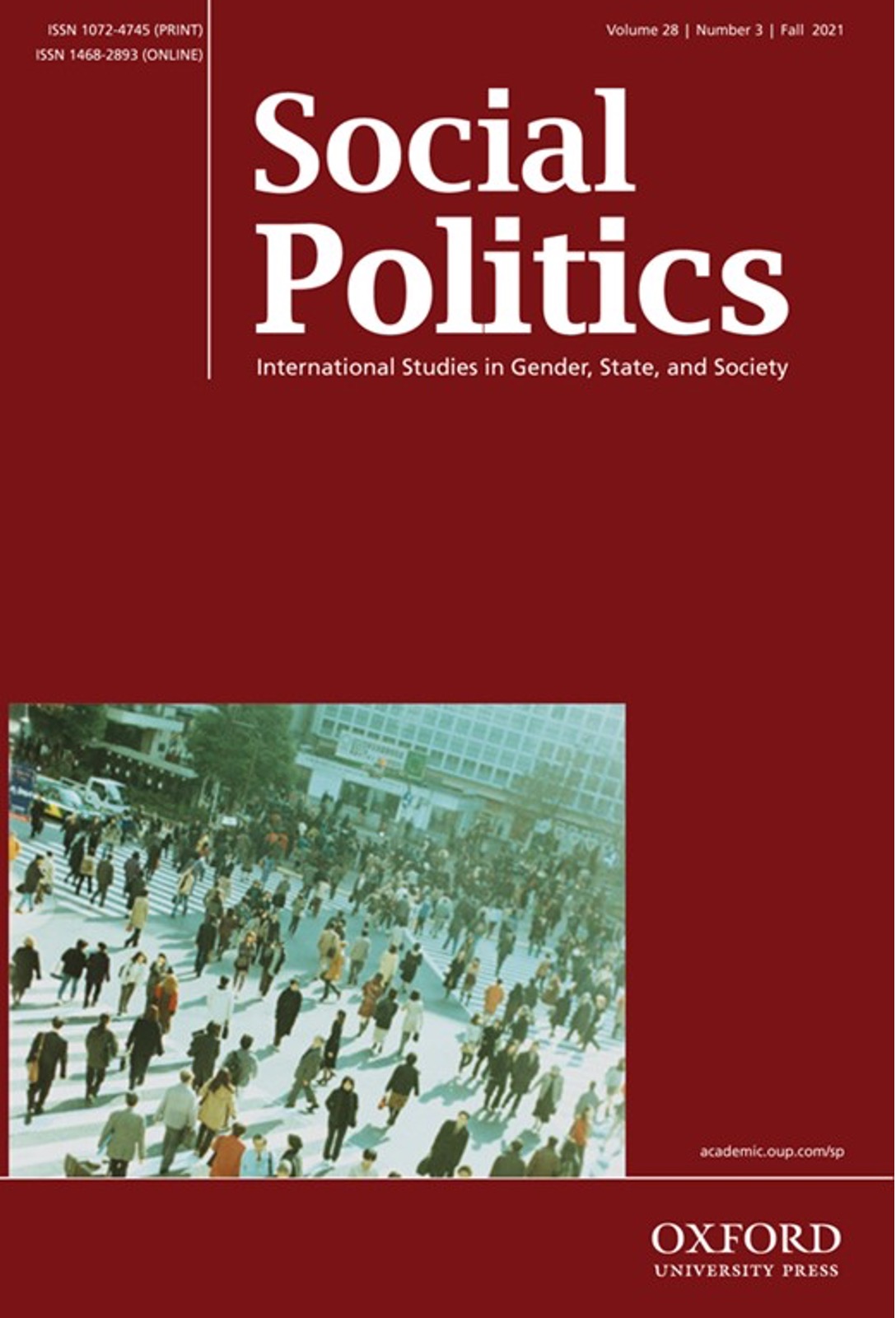
News/Noticias
- David Paternotte: “Los grupos antigénero y ultraconservadores preparan el relevo generacional en escuelas y universidades”
- Una millonaria ofensiva ultracatólica busca mermar en Europa los derechos de las mujeres y LGTBI
- ¿Cómo es ser LGTBI en Hungría en medio de la ofensiva de Orbán?
- Aborto en Estados Unidos: la Corte Suprema deroga Roe vs. Wade y elimina el derecho constitucional a la interrupción del embarazo en todo el país
- Misuri y Texas se convierten en los primeros Estados que prohíben totalmente el aborto en Estados Unidos
- Las luchas por los derechos de las mujeres y de la diversidad sexual que no se detienen
- Una ofensiva antiaborto se convierte en una nueva amenaza para las polacas
- Los derechos del colectivo LGTBI+, bajo amenaza en media Europa
- El lobby ultraconservador en Europa